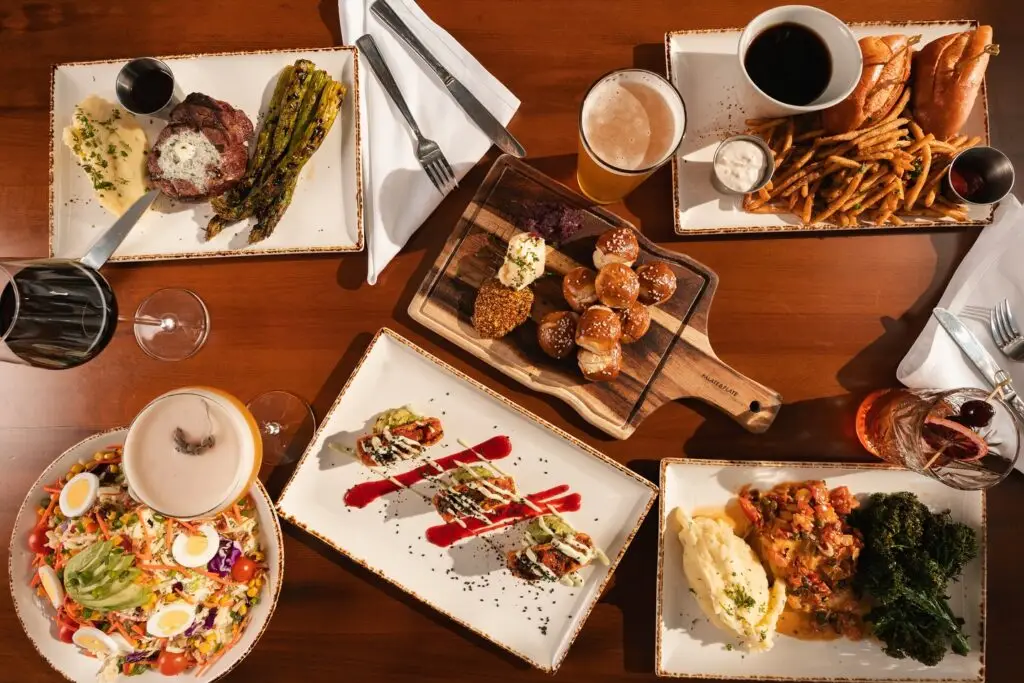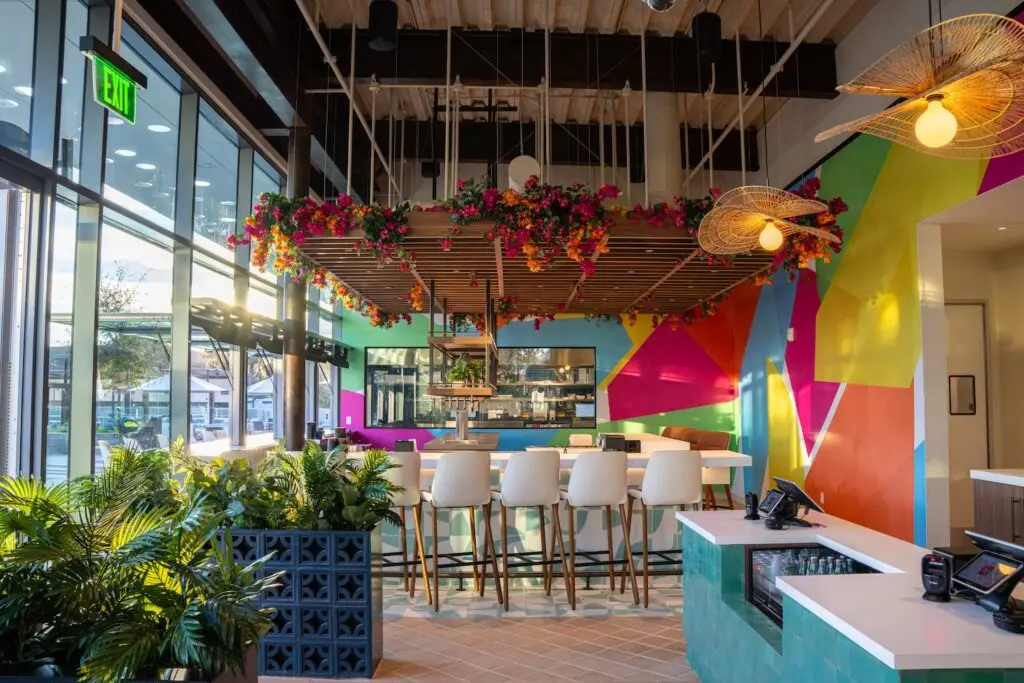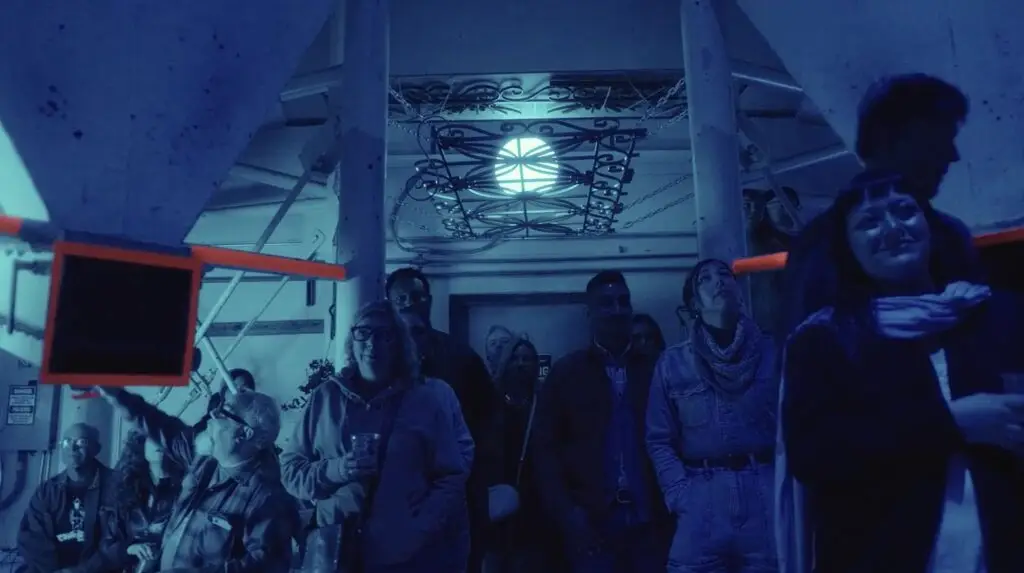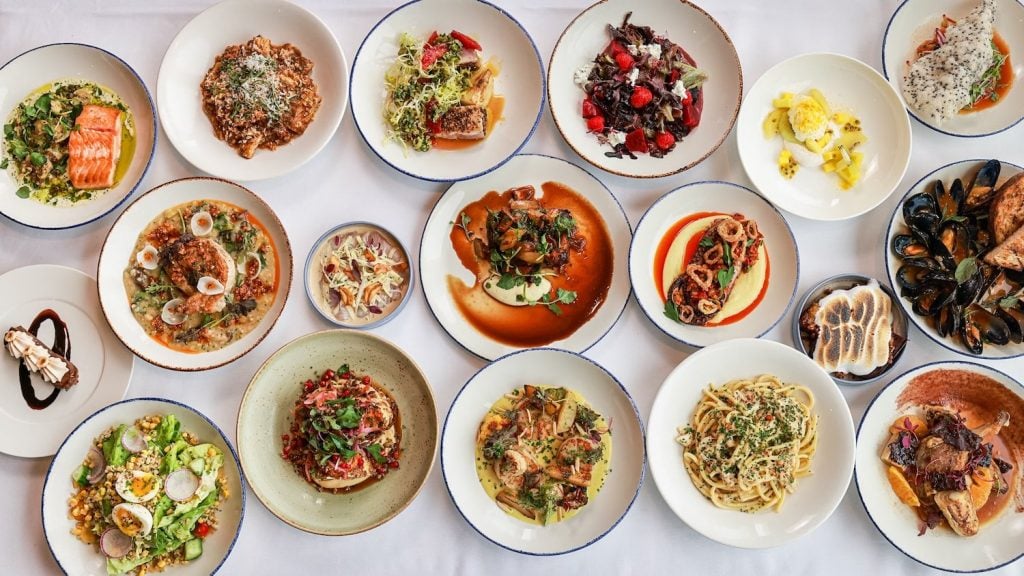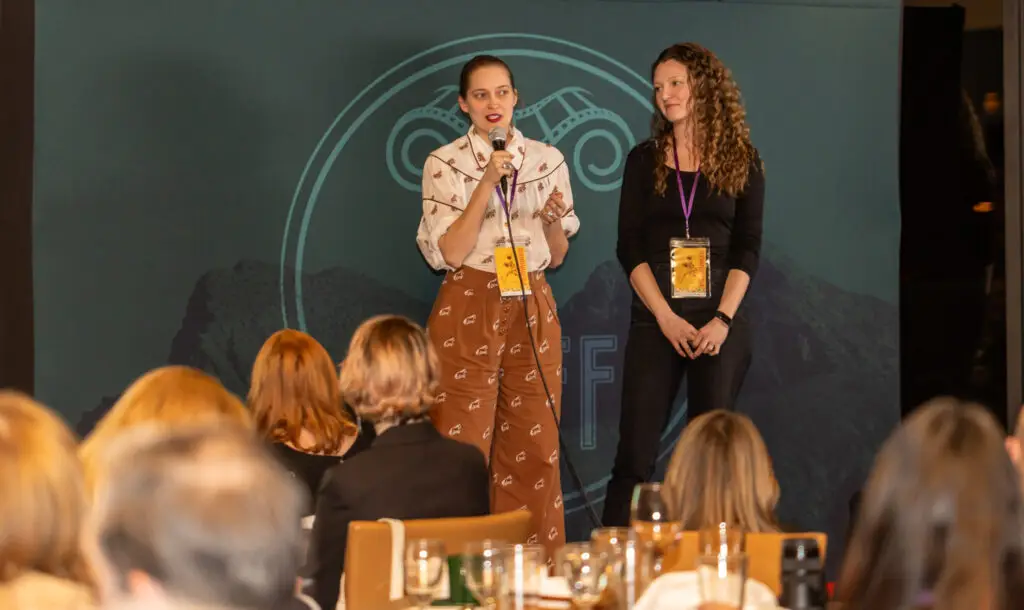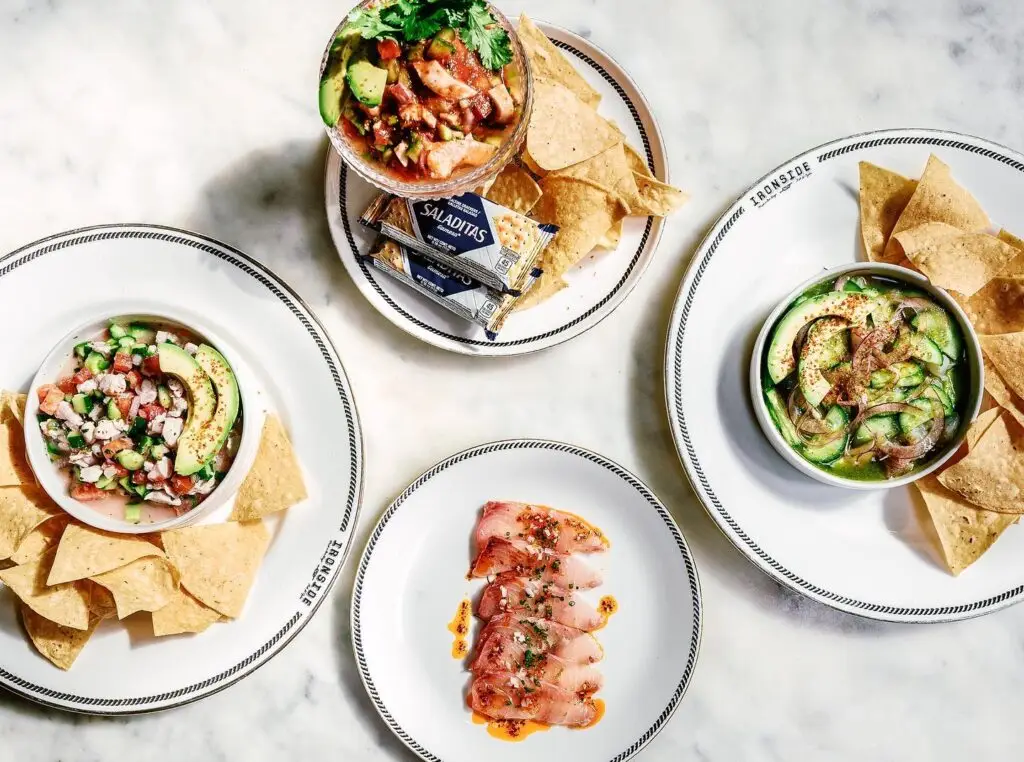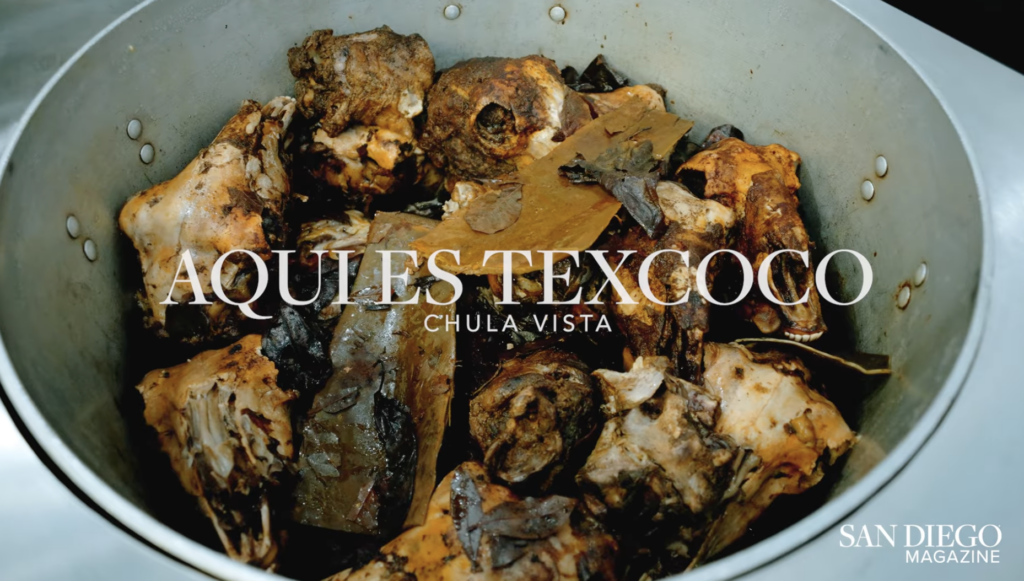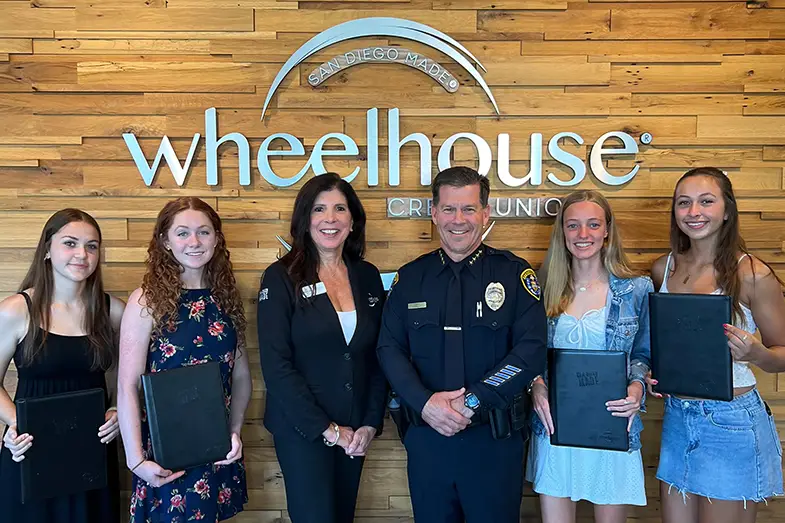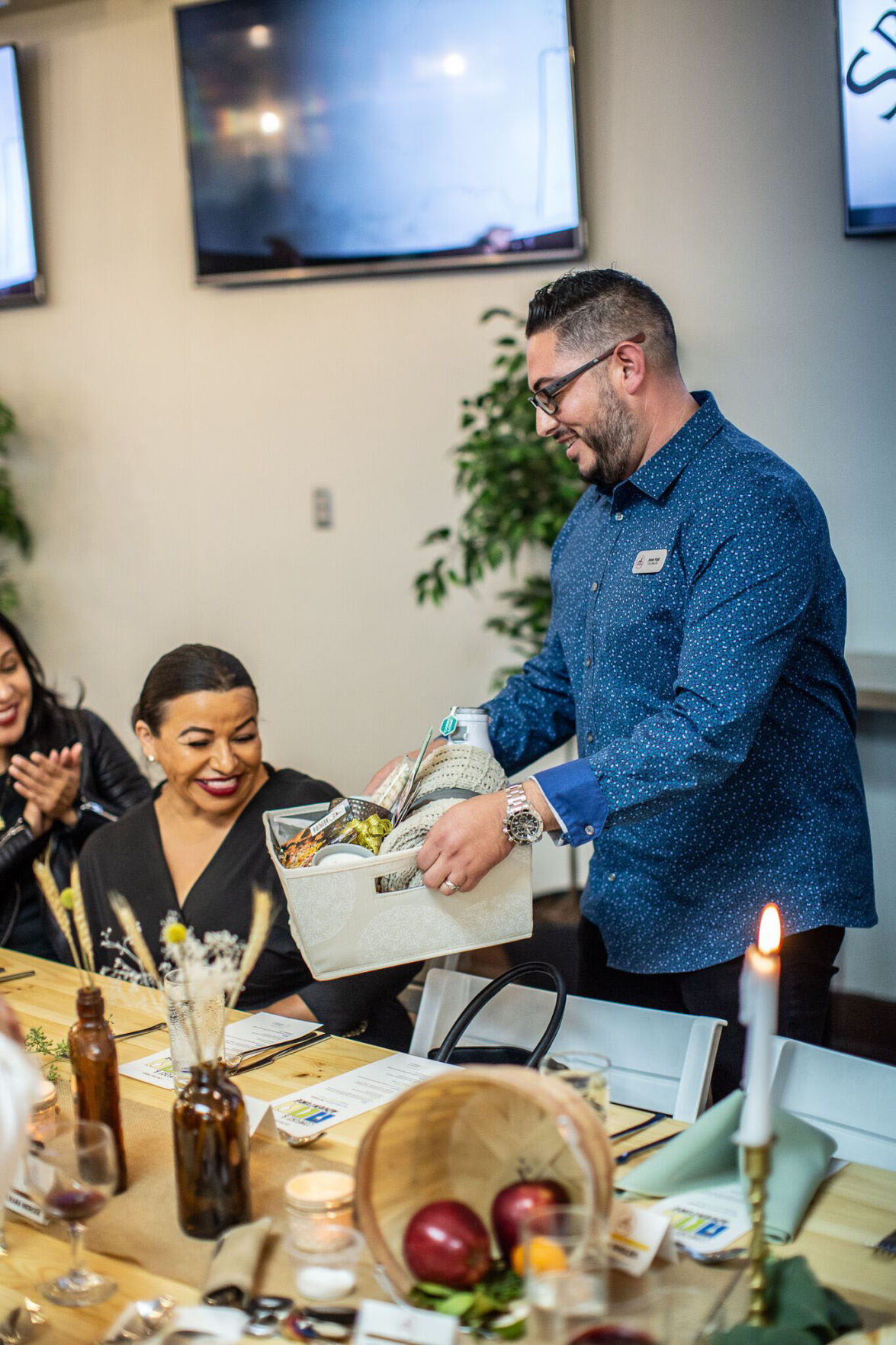
Big Table’s Jesse Vigil and local hospitality workers gather to share a meal,swap experiences, and build relationships
When the pandemic struck, the restaurant and hospitality industries faced an uphill battle. Over 100 San Diego eateries shut their doors for good. Others weathered the storm with expanded takeout options and by turning their sidewalks and parking lots into makeshift patios. Still, forced closures, limited-capacity reopenings, and the scaling back of social gatherings took their toll.
The pandemic has been brutal on public-facing entities. Restaurants, hotels, and the tourism sector—which had been roughly 200,000 employees strong prior—are still reeling from the hit. “It’s been a roller coaster,” says Peter Callstrom, president and
CEO of the San Diego Workforce Partnership. “It was devastating for the whole economy early on and for some time, then with the restrictions being lifted by the governor in the summer, it was seemingly getting us back to closer to normal.”
But then, of course, the delta variant came. San Diego nonprofits stepped in early on to help struggling workers and owners through the toughest times. Big Table operates on a referral model where anyone—friend, coworker, customer—who knows of a hospitality worker in need can pass along their info. Big Table leverages their resources to help wherever possible: They’ve helped secure dental work, living expenses, and even much-needed treatment and medication for a La Jolla busser with multiple sclerosis. Demand skyrocketed during the pandemic. Jesse Vigil, city director for the San Diego branch, says the organization served fewer than 100 people in 2019, its first year operating here. In 2020, they helped more than 700.
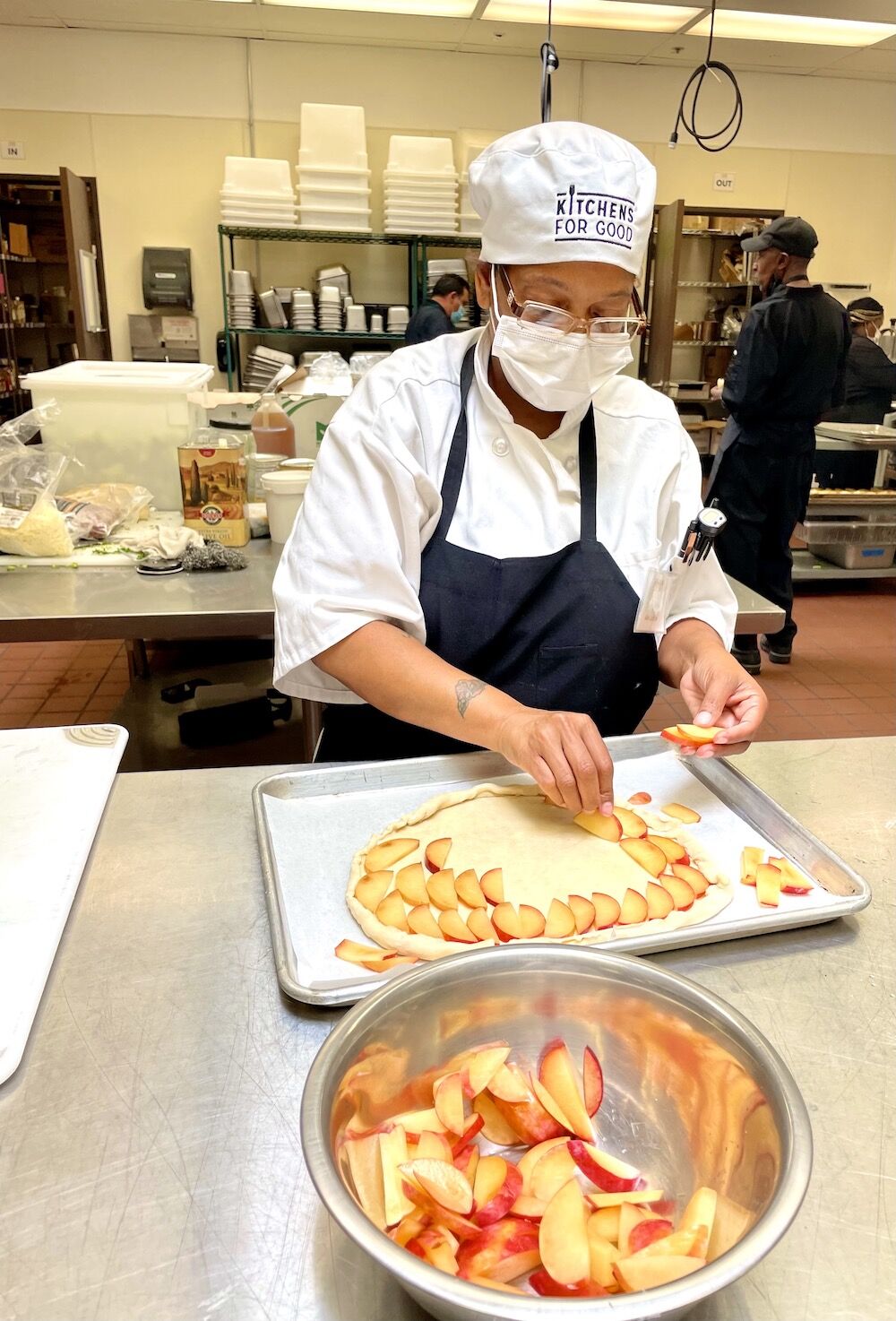
Kitchens for Good’s apprentices learn “knife skills and life skills”
“It’s been a difficult journey, but it’s so rewarding to be able to build relationships with these individuals,” Vigil says. “Our hope is that every single restaurant and hotel knows that we are here, and we are going to care for them with no strings attached.”
As the pandemic wore on, another crisis emerged: a staffing shortage. Restaurants raised wages and offered signing bonuses, and some tapped into an unconventional labor market with the help of Kitchens for Good, which runs a tuition-free culinary apprenticeship program for those formerly incarcerated or homeless, and for young adults leaving the foster care system. Participants spend 17 months in paid training to become chefs, bakers, managers, and more.
“Our apprentices are set up to navigate the stress, uncertainty, and pressure that’s in this industry, work their way up, and create a meaningful career for themselves that aligns with their own aspirations,” says Maggie McDermott, Kitchens for Good’s marketing and communications manager.
Since it launched in 2015, Kitchens for Good has helped over 350 San Diegans begin a career in the hospitality industry. It also participates in High Road Kitchens, a statewide initiative to uplift restaurants, hire or rehire workers, raise wages, and provide low-cost meals for those in need. In San Diego, High Road Kitchens was backed by the San Diego Foundation and the San Diego Workforce Partnership, and it helped 16 restaurants cover their expenses.
PARTNER CONTENT
“It’s a game changer,” McDermott says, “and it really speaks to these shifting tides in the hospitality industry.”
